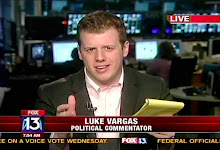Who knew, that nearly half a decade after its publication, the faded and unassuming "New England State Politics" would still be so relevant?
The section on Connecticut is the largest, but what's contained in the New Hampshire chapter offers both a brief retelling of the state's history and an accurate guide for what 21st century Granite State politics have evolved into.
According to the book, the New Hampshire primary first gained its importance in 1952 with the defeat of Robert Taft by Dwight Eisenhower--the candidate long believed to be the frontrunner in the state. Only six years after that election, the book weighed in on the primary's significance in the state.
"To the extent that the primary opens new avenues to the aspiring politician hoping to move into the ranks of the influentials either within the party or in the public office, the primary thereby cuts some of the ground from under the customary party organization. If the main route to power is through the leadership of the party, the organization ipso facto is powerful. But if a direct appeal to the voters really becomes an alternative route to power, the central leadership is certain to decline."
I take that to mean there's no such thing as a frontrunner going into New Hampshire primary season. It confirms that John McCain's lead last year didn't have to hold, and it means Hillary Clinton and Mitt Romney may not stay on top.
I've got a list of things I'd like to do before I die, and on that list at position #4 is "Go to a bookstore and buy and read all the classics." Though I have no idea what I would learn from such an undertaking, sometimes what someone said many years ago makes more sense than the new releases of today.
We'll see what I find next.







No comments:
Post a Comment